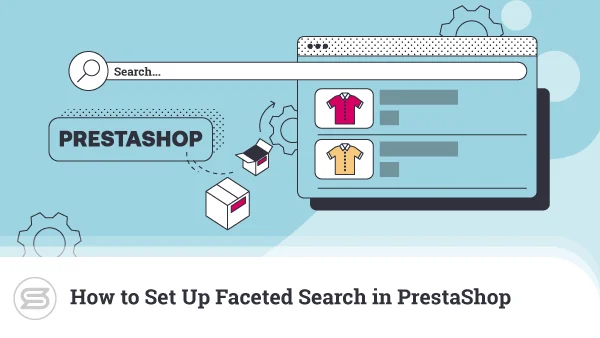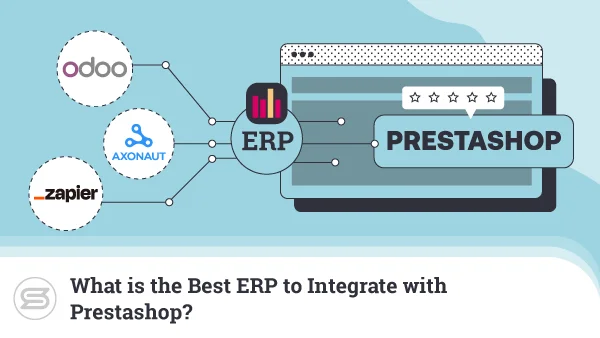Online stores have been growing in size and complexity. Part of this is caused by the boom in ecommerce, part is due to the increased competitiveness in the niche. Regardless of the reason, growing your online shop means handling larger volumes of visitor traffic, which results in greater stress on your hosting account.
If you want to continue serving your customers well, moving on to Virtual Private Server (VPS) or even dedicated hosting might be unavoidable. As the growth in digital retail sales increases further, you have to be prepared with a powerful enough hosting solution to handle all visitors.
What is a Big Online Store
Amazon, Walmart, Rakuten, or BestBuy – those are names we are all familiar with. Some have literally grown with the internet, while others moved online to diversify their sales channels. There are also a few that maintain a combination of both physical and virtual stores.
A big part of the success of these brands stems from the fact they carry goods in both scope and volume. Amazon, for example, allows sellers to list almost anything for sale to destinations worldwide. Yet most of these ecommerce retail giants started much smaller.
Over the years, their success has top ecommerce brands to widen their scope of operations. Of course, any startup looks to eventually grow to become an enterprise of this magnitude.
Types of Big Online Stores
The term online store can be a bit too generic. In reality, there are many types of online stores that can be segregated in various ways – revenue model, website type, or even business model.
Looking at the more traditional retail structure, we can split ecommerce sites into a few groups: individual brands, retail stores, and digital marketplaces. Each of these has the potential for high volumes of sales.
Individual Brand Store
In some instances, brands may prefer exclusive control over their online sales. Even if they choose to work with retailers, many will often set up their own store. These stores are more exclusive and will restrict what’s available for sale.
One example of an individual brand store is Nike.com, which only offers products from its own brand. At the same time, it sells various types of goods, such as footwear, clothing, and accessories.
Online Retail Platform
These sites are the digital form of physical retailers that often represent multiple brands. Retail platforms will buy and then resell the goods on their own channel, resulting in a mall-like experience for consumers.
BestBuy is a great example of an online retail platform. It sells various brands of consumer electronics and even allows you to group similar products from various brands. The advantage of such online stores is the range of offerings, bringing in a wider audience.
Digital Marketplace
Digital marketplaces are not involved in actual sales, instead, they merely provide a medium allowing others to do so. Anybody can join the platform on either side of the equation and find the brand that has their desired products.
Rakuten.com is a highly popular digital marketplace that works in this manner. The platform is a medium for buyers and sellers and acts as the governing intermediary for online sales. The large transaction volume that marketplaces like Rakuten handle is truly impressive.
Criteria to Choose Hosting for a Big Online Store
Most online stores have higher requirements than standard websites when it comes to web hosting. Part of the reason is due to the platforms that drive these sites. Other areas of consideration factor in as well – including the amount of traffic that each site needs to cope with the load.
Because of this, many areas of web hosting come into focus for big online stores.
Performance
Given how demanding consumers are today, underperforming online stores are more likely to lose out on potential sales. Amazon researchers have found that even a 100ms increase in latency could result in a 1% drop in sales on their platform.
In almost all cases, online stores rely on traffic numbers. A microscopic change in performance could lead to big changes in your revenue stream. You need to always aim for the best performance possible, not only for your brand but as a way to offer your customers the best shopping experience they can have.
Security
Since online stores have to handle personal and financial data, these sites have to be kept more secure than other websites. While some of this responsibility falls on the site owners, web hosting also plays a major part, with services such as VPS or dedicated hosting often being superior simply because of the advanced infrastructure.
Reliability
Although site speed can affect sales possibilities, reliability is even more crucial. Downtimes will not only lose you sales but affect your brand reputation and customer trust in a negative way.
Support
If your online shop goes down, it’s important to know the web host you’ve chosen has your back at all times. Some providers may offer limited recourse for technical assistance, which is why the ScalaHosting support has such a strong competitive edge. Our trained professionals are always ready to help with advice, tips, and issue resolution assistance.
Scalability
Ecommerce stores tend to need a high degree of agility when it comes to hosting. Periods like Black Friday, Cyber Monday, or Christmas can be extremely heavy on online shops with sudden spikes in visitor volume. Any hosting that offers easily adjustable resources is guaranteed to meet these ad-hoc needs.
Backups
Knowing that any operational outages can cost you a significant amount of money, your hosting provider has to have a good backup system in place. It enables you to quickly recover from any disasters and maintain strong business continuity at all times.
Hosting Environment
Not all online stores make use of the same platforms. Some have specific needs, which is why customizable hosting environments are important. Having the flexibility to build the exact components you need for your online store can not only serve that purpose but also allow you to make adjustments for optimal performance.
How VPS Might Help a Big Online Store
While there may be some debate about the exact type of hosting that fits the needs of big online stores, two contenders are certainly at the forefront – VPS and dedicated hosting. Far superior to shared hosting, both these categories offer excellent performance and security.
Of the two, VPS hosting is much more cost-effective while allowing site owners to enjoy similar benefits. Among these are:
- Better stability – Compared to shared hosting, VPS plans are much more reliable in many ways. The most important aspect of the stability it offers is stability and consistency. Since the environment for VPS accounts is isolated, sites hosted on these plans are subject to fewer external influences.
- Better loading speeds – Since VPS plans come with dedicated resources, online stores have the potential for much better performance. Anytime visitors come to the site, resources are needed to serve the information requested. Since VPS plans do not share any resources with other accounts or sites – they will always be able to respond quickly.
- Better Security – Given the isolated nature of VPS environments, data security also increases. If a hacker manages to breach accounts on the same physical server, your VPS account will remain unaffected.
- Scalability– The factor that most clearly demonstrates the hosting suitability for online stores. VPS accounts are extremely scalable, meaning the amount of resources available to them can be adjusted at any time.
One example where this can come in helpful is during spikes in visitor traffic.


When Should a Big Online Store Use VPS and Why
If your store has been growing considerably in the product range and volume of customers, it may be time to consider a move to VPS hosting. In such cases, a pre-emptive planned move is much better than one forced by necessity.
Online stores that outgrow their hosting plan can face significant operational challenges. These include everything from site outages and erratic performance to increased cybersecurity risks.
As a store owner, being aware of these increased risks can help you plan a move to VPS. This helps smoothen the transfer to your new account while minimizing any potential downtime which may arise from a forced move.
Possible Issues When Switching to VPS
For those anticipating a move from shared hosting to VPS, one of the biggest obstacles is account handling. Shared hosting is exceptionally easy to manage in that aspect – essentially, there is not much for users to do.
VPS plans are more technically demanding by nature. You often need to install and configure things you wouldn’t normally worry about in shared hosting plans.
For example, your operating system (OS) can be chosen and pre-deployed by the host, but that is generally the extent of unmanaged VPS services. You need to install and setup other components like the web server, database, firewall, and any associated software.
Although this may seem problematic, solutions do exist.
ScalaHosting offers Managed Cloud VPS plans. If you leverage this type of hosting, you won’t have to worry about any technicalities. Simply let the support team know what you need, and it will be built to your specifications.
Managed VPS plans are unique because they allow you to take advantage of the VPS platform without knowing anything about server management. You get a user-friendly dashboard and feature-packed SPanel where everything is just a few clicks away.
All you have left is to focus on your business growth.
Conclusion
Running an online store can be very challenging, but not so when you have a reliable partner. Viable solutions await around the corner so you can enjoy a fast website with loads of happy customers.
No need to struggle with an underperforming service when you can bet on a powerful VPS server and ensure an optimized environment for an ecommerce website.
If you feel comfortable enough managing your own server, you can go for an unmanaged solution or pick managed if you want to enjoy more professional assistance.
Frequently Asked Questions
Q: What do I need to host an online store?
A: The most basic elements for hosting an online store a server plan, a domain name, a web builder, and a payment processing merchant. Once set up, you can simply add products and start serving your customers.
Q: Does the server location of my store matter?
A: That is not only true, but it may matter more than you think. You should always aim to pick a server location closest to your anticipated target market for best performance. The host you choose can also make a difference in both reliability and performance.
Q: Do online stores make money?
A: As with any business, the chances of profitability for online stores are influenced by various factors. From site performance to the choice of merchandise, planning ahead remains key to a successful endeavor.
Q: Why is my online store not selling?
A: While there can be many reasons for this, one important aspect of successful sales is simply getting seen. Improving your search rankings through content and better site performance will immensely help bring a larger volume of visitors in.
Q: Is VPS the best solution for online stores?
A: In many ways, yes. VPS packages offer excellent security and cost-effectiveness for most online stores. The virtual server environment scales easily, allowing store owners to steadily grow their projects without any costly hosting upgrades.





